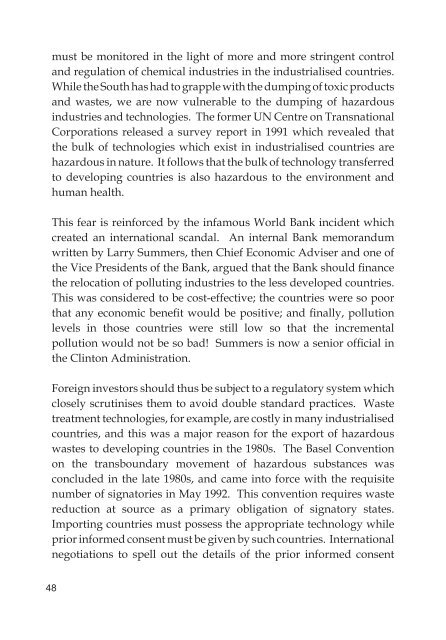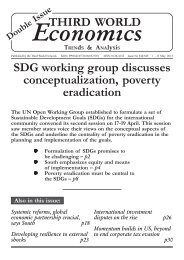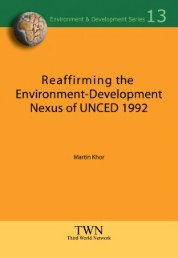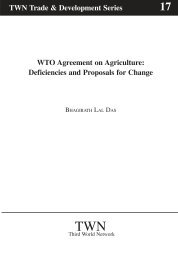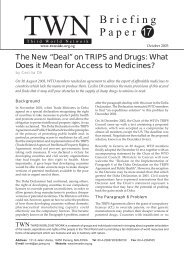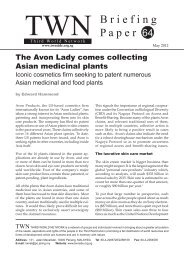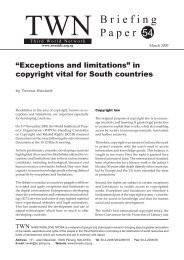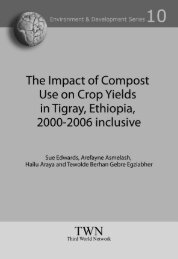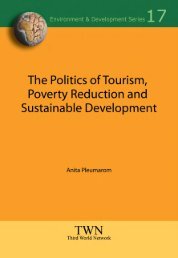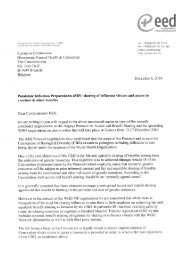Rio Declaration On Environment and Development: An Assessment
Rio Declaration On Environment and Development: An Assessment
Rio Declaration On Environment and Development: An Assessment
You also want an ePaper? Increase the reach of your titles
YUMPU automatically turns print PDFs into web optimized ePapers that Google loves.
must be monitored in the light of more <strong>and</strong> more stringent control<br />
<strong>and</strong> regulation of chemical industries in the industrialised countries.<br />
While the South has had to grapple with the dumping of toxic products<br />
<strong>and</strong> wastes, we are now vulnerable to the dumping of hazardous<br />
industries <strong>and</strong> technologies. The former UN Centre on Transnational<br />
Corporations released a survey report in 1991 which revealed that<br />
the bulk of technologies which exist in industrialised countries are<br />
hazardous in nature. It follows that the bulk of technology transferred<br />
to developing countries is also hazardous to the environment <strong>and</strong><br />
human health.<br />
This fear is reinforced by the infamous World Bank incident which<br />
created an international sc<strong>and</strong>al. <strong>An</strong> internal Bank memor<strong>and</strong>um<br />
written by Larry Summers, then Chief Economic Adviser <strong>and</strong> one of<br />
the Vice Presidents of the Bank, argued that the Bank should finance<br />
the relocation of polluting industries to the less developed countries.<br />
This was considered to be cost-effective; the countries were so poor<br />
that any economic benefit would be positive; <strong>and</strong> finally, pollution<br />
levels in those countries were still low so that the incremental<br />
pollution would not be so bad! Summers is now a senior official in<br />
the Clinton Administration.<br />
Foreign investors should thus be subject to a regulatory system which<br />
closely scrutinises them to avoid double st<strong>and</strong>ard practices. Waste<br />
treatment technologies, for example, are costly in many industrialised<br />
countries, <strong>and</strong> this was a major reason for the export of hazardous<br />
wastes to developing countries in the 1980s. The Basel Convention<br />
on the transboundary movement of hazardous substances was<br />
concluded in the late 1980s, <strong>and</strong> came into force with the requisite<br />
number of signatories in May 1992. This convention requires waste<br />
reduction at source as a primary obligation of signatory states.<br />
Importing countries must possess the appropriate technology while<br />
prior informed consent must be given by such countries. International<br />
negotiations to spell out the details of the prior informed consent<br />
48


